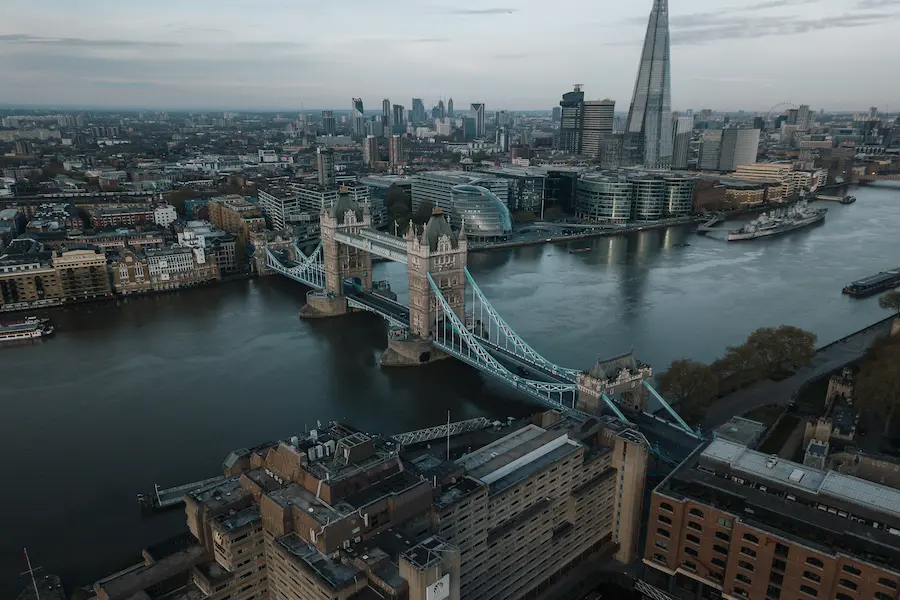What does Biden’s inauguration mean for climate change?

After a contentious election, and a tumultuous confirmation hearing in Congress which sparked shameful riots in Washington D.C., Joe Biden will today become the 46th President of the United States, at the official inauguration ceremony. Many have heralded the result as a long-awaited return to normality, with Biden seeking to reverse President Trump’s dangerous policies of U.S. isolationism, anti-immigrant rhetoric and climate denialism. The question on everyone’s lips now is – just how ambitious will President Biden’s administration be when it comes to climate policy? We take a look at what we can expect in the next four years.
Biden’s climate top team
From the moment Biden enters the White House, he will be wiping away the cobwebs of climate denialism which had gathered during the Trump administration. Following years of climate progress under former President Barack Obama, Trump entered the White House boasting that climate change was a “hoax”, “a total con job”, “created by the Chinese”, and recently predicted in front of Californian scientists: “It’ll start getting cooler, just you watch”.
During the U.S. presidential election debates, Biden acknowledged that climate change is the greatest threat facing the U.S. and the world today. He has appointed former Secretary of State John Kerry as his newly-established Special Climate Envoy, to support climate diplomacy around the world, and he will also have a seat at the National Security Council. He has also appointed Gina McCarthy and Ali Zaidi as National and deputy Climate Advisors, as new positions within the White House Team. We can be certain that climate change scepticism, so prominent in Trump’s inner circle, will have no place in a Biden administration.
COP26 and a return to the Paris Agreement
On June 1st 2017, President Trump declared that he would seek to end American involvement in the Paris Agreement of 2015 – the historic accord which sought to keep the global temperature rise to well below 2C. Trump argued that the agreement “would undermine our economy, hamstring our workers, and put us at a permanent disadvantage to the other countries of the world.” The day after the U.S officially left the Paris Agreement on 5th November, Biden tweeted that as soon as he is inaugurated, “a Biden administration will rejoin it,” and this has since been confirmed as one of his first acts of office. This is hugely significant, with world leaders looking towards COP26 in Glasgow as the next major milestone in climate diplomacy.
Today, the Trump Administration officially left the Paris Climate Agreement. And in exactly 77 days, a Biden Administration will rejoin it. https://t.co/L8UJimS6v2
— Joe Biden (@JoeBiden) November 5, 2020
As Boris Johnson seeks to build bridges with the new U.S. administration, a common agenda on climate change will be key. The Prime Minister has stated on several occasions that climate change is one of their top “shared priorities”. But there is much at stake. After disappointment at COP25 in Madrid following pitiful progress, and strong criticism from youth activists, Biden and Johnson will need to turn warm words into ambitious action.
Biden’s Plan vs Green New Deal
President Trump’s love for fossil fuels is well-known. He proudly shared posters at his rallies stating “Trump digs coal”, and extolled the virtues of “Big Oil” throughout his presidency. Biden has signalled a clear departure from fossil fuels and called for a ‘Clean Energy Revolution’ as part of his Biden Plan to tackle climate change. The Plan will not see a total ban on all fossil fuels – he has not committed to a ban on fracking, following clarification in a tweet by Vice Presidential candidate Kamala Harris. But his administration has promised to end all subsidies for fossil fuel industries, seeks a carbon pollution-free power sector by 2035, and has promised to cancel the controversial Keystone XL oil pipeline upon entering office.
However, some in Biden’s Democratic Party have called for a more ambitious (and expensive) Green New Deal – to move to 100% renewable energy, create 20 million green jobs, and ensure a just transition for fossil fuel workers. With the tightest of Democrat majorities in the Senate, and an increasingly progressive Democratic Party, Biden will have to seek a difficult compromise.
Green recovery from COVID-19
President Trump’s inaction on COVID-19 means dealing with the pandemic will likely be Biden’s immediate priority upon entering the White House. But as the world scrambles for a vaccine, hoping to put this disaster behind us all, Biden will push for a green stimulus package worth $2 trillion to support a green recovery from COVID-19. This investment in clean energy, green jobs and ‘shovel-ready’ projects will help to show the world what a post-COVID world might look like. The world looks very different in 2021, compared to when President Trump took office four years ago. Many are hopeful that as Biden takes charge in defeating the Coronavirus pandemic, he will also turn his attention to the world’s next greatest threat – the looming climate emergency.
Sign up to Greenhouse’s public affairs newsletter here for a weekly update on environmental politics news and insights.


